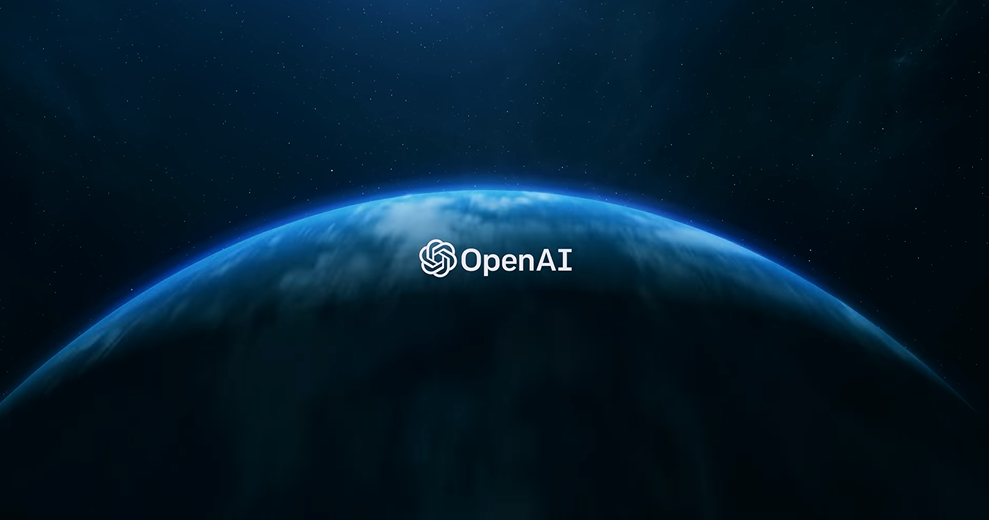OpenAI Facing FTC Investigation: A Deep Dive Into The Issues

Table of Contents
Data Privacy Concerns at the Heart of the OpenAI FTC Investigation
The FTC's investigation into OpenAI is likely centered on significant data privacy concerns. The vast datasets used to train OpenAI's powerful models raise critical questions about data collection, usage, and security.
Data Collection and Usage Practices
The FTC is likely examining OpenAI's data collection and usage practices, focusing on several key areas:
- Consent and Data Origin: Concerns exist about the origin of the training data and whether informed consent was obtained from individuals whose data was used. This is especially relevant given the sensitive nature of some data potentially included in the training datasets.
- Compliance with Regulations: OpenAI's practices are likely being scrutinized for compliance with data privacy regulations like the General Data Protection Regulation (GDPR) in Europe and the California Consumer Privacy Act (CCPA) in the US. Non-compliance could result in significant penalties.
- Transparency and Retention: The lack of transparency regarding OpenAI's data usage and retention policies is a significant concern. Users need clear information about how their data is being used and for how long it is retained.
Data Security and Breach Risks
Another key aspect of the FTC's investigation likely involves the security measures OpenAI employs to protect user data and the potential risks of data breaches.
- System Vulnerabilities: The FTC is probably examining the vulnerabilities within OpenAI's systems that could expose sensitive user information to unauthorized access or misuse.
- Potential for Misuse: The investigation likely includes assessing the potential for malicious actors to misuse user data collected through OpenAI's AI models.
- Robust Security Protocols: The need for robust and comprehensive security protocols to safeguard user privacy is paramount and will be a key focus of the investigation.
Algorithmic Bias and Fairness Issues within OpenAI's Models
The FTC's investigation also likely addresses concerns about algorithmic bias and fairness embedded within OpenAI's models.
Unintended Discrimination and Bias
The investigation will likely examine instances where OpenAI's models have produced outputs reflecting unintended discrimination or bias.
- Biased Outputs: Examples of biased outputs from ChatGPT and other OpenAI models will be under scrutiny, highlighting the need for fairness and equity in AI systems.
- Lack of Diversity in Training Data: The lack of diversity within the training datasets used to develop OpenAI's models could lead to skewed results and perpetuate existing societal biases.
- Mitigation of Algorithmic Bias: The investigation will likely explore the effectiveness of methods employed by OpenAI to detect and mitigate algorithmic bias.
Lack of Transparency and Accountability
The "black box" nature of many AI models makes it difficult to understand how they arrive at their conclusions, raising concerns about accountability.
- Explainability and Interpretability: The FTC is likely looking into the need for greater explainability and interpretability in AI systems to understand and address biases more effectively.
- Accountability Mechanisms: The investigation may examine the need for clear accountability mechanisms to address and rectify biased outputs from AI models. Who is responsible when an AI system generates biased or harmful content?
Consumer Protection and Misinformation Risks Posed by OpenAI's Technology
The FTC's investigation extends to the broader implications of OpenAI's technology for consumer protection and the spread of misinformation.
Potential for Misinformation and Malicious Use
OpenAI's technology, particularly its generative AI models, has raised concerns about its potential for misuse in creating and spreading misinformation.
- AI-Generated Disinformation: The ease with which ChatGPT can generate convincing but false content poses a significant risk for the spread of disinformation.
- Detection Challenges: Detecting AI-generated disinformation is proving to be a significant challenge, requiring ongoing research and development of countermeasures.
- Safeguards Against Malicious Use: The investigation likely emphasizes the need for safeguards to prevent the malicious use of AI for generating fake news and other forms of harmful content.
Impact on Consumers and the Marketplace
The FTC will likely assess the wider impact of OpenAI's technology on consumers and fair competition.
- Unfair or Deceptive Trade Practices: The investigation may focus on potential unfair or deceptive trade practices related to AI-generated content and services.
- Impact on Employment: The investigation will likely examine the impact of AI automation on employment and the workforce, focusing on potential job displacement and the need for workforce retraining and adaptation.
- Consumer Protection Measures: The investigation underlines the need for strong consumer protection measures to mitigate potential harms associated with the widespread adoption of AI technologies.
Conclusion
The FTC's investigation into OpenAI is a landmark moment in AI regulation, highlighting the urgent need for responsible AI development prioritizing data privacy, algorithmic fairness, and consumer protection. The investigation's outcome will shape the future of AI regulation, setting precedents for other companies and driving the creation of ethical guidelines and best practices. Staying informed about this OpenAI FTC investigation and its implications is crucial for navigating the complex ethical and legal landscape of artificial intelligence. Understanding the issues is critical for everyone involved in or impacted by this rapidly evolving technology.

Featured Posts
-
 A Place In The Sun Your Guide To Finding The Perfect Property Abroad
May 03, 2025
A Place In The Sun Your Guide To Finding The Perfect Property Abroad
May 03, 2025 -
 Nigel Farage Press Conference My Eyewitness Account
May 03, 2025
Nigel Farage Press Conference My Eyewitness Account
May 03, 2025 -
 See How Different Harry Potters Crabbe Looks Now
May 03, 2025
See How Different Harry Potters Crabbe Looks Now
May 03, 2025 -
 Family Mourns The Loss Of Beloved Manchester United Fan Poppy
May 03, 2025
Family Mourns The Loss Of Beloved Manchester United Fan Poppy
May 03, 2025 -
 Dari Sampah Menjadi Harta Panduan Lengkap Mengolah Cangkang Telur Menjadi Pupuk Dan Suplemen
May 03, 2025
Dari Sampah Menjadi Harta Panduan Lengkap Mengolah Cangkang Telur Menjadi Pupuk Dan Suplemen
May 03, 2025
